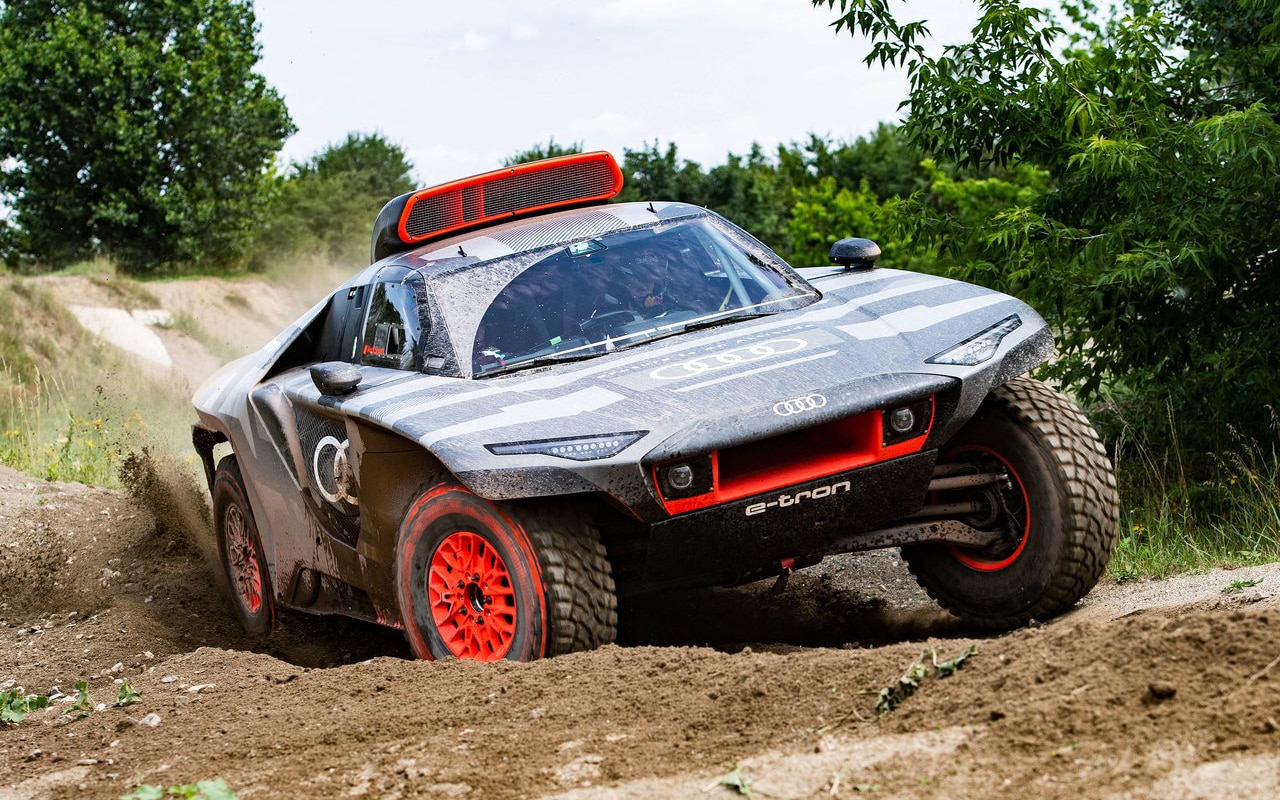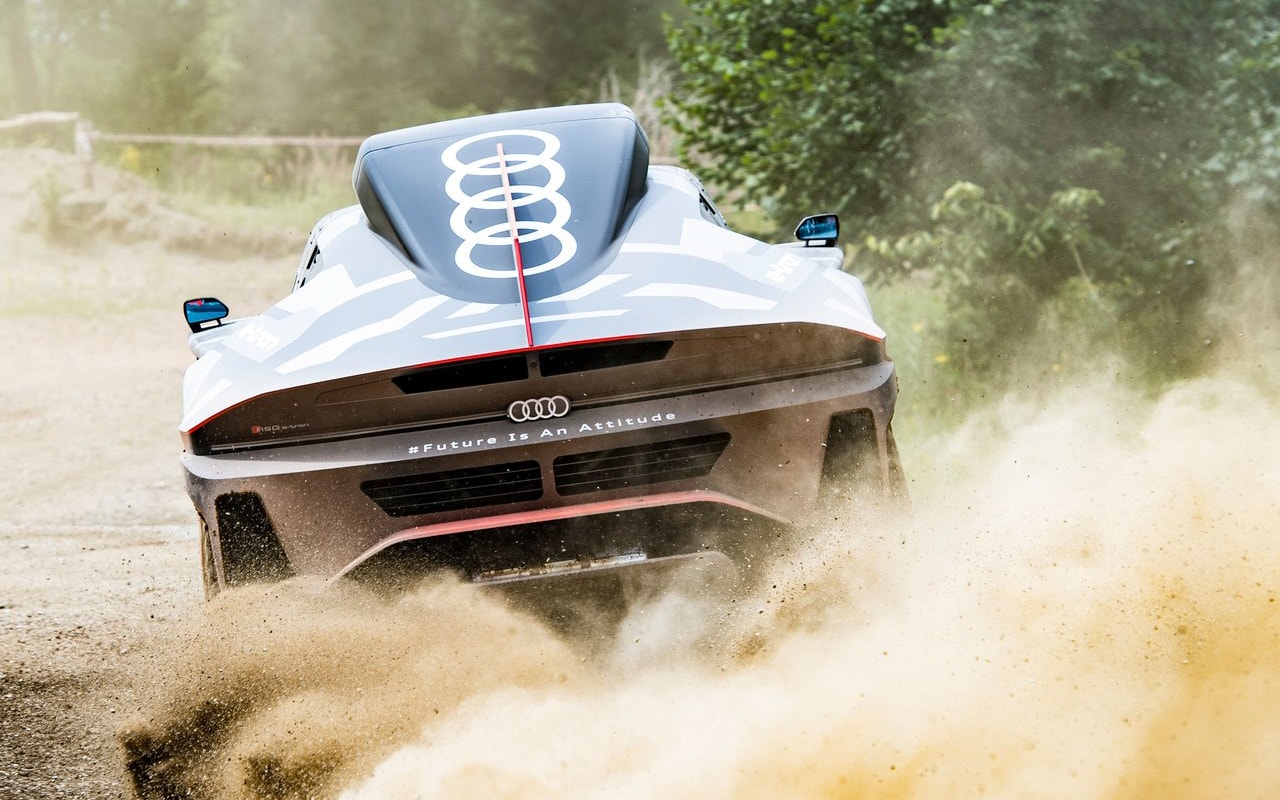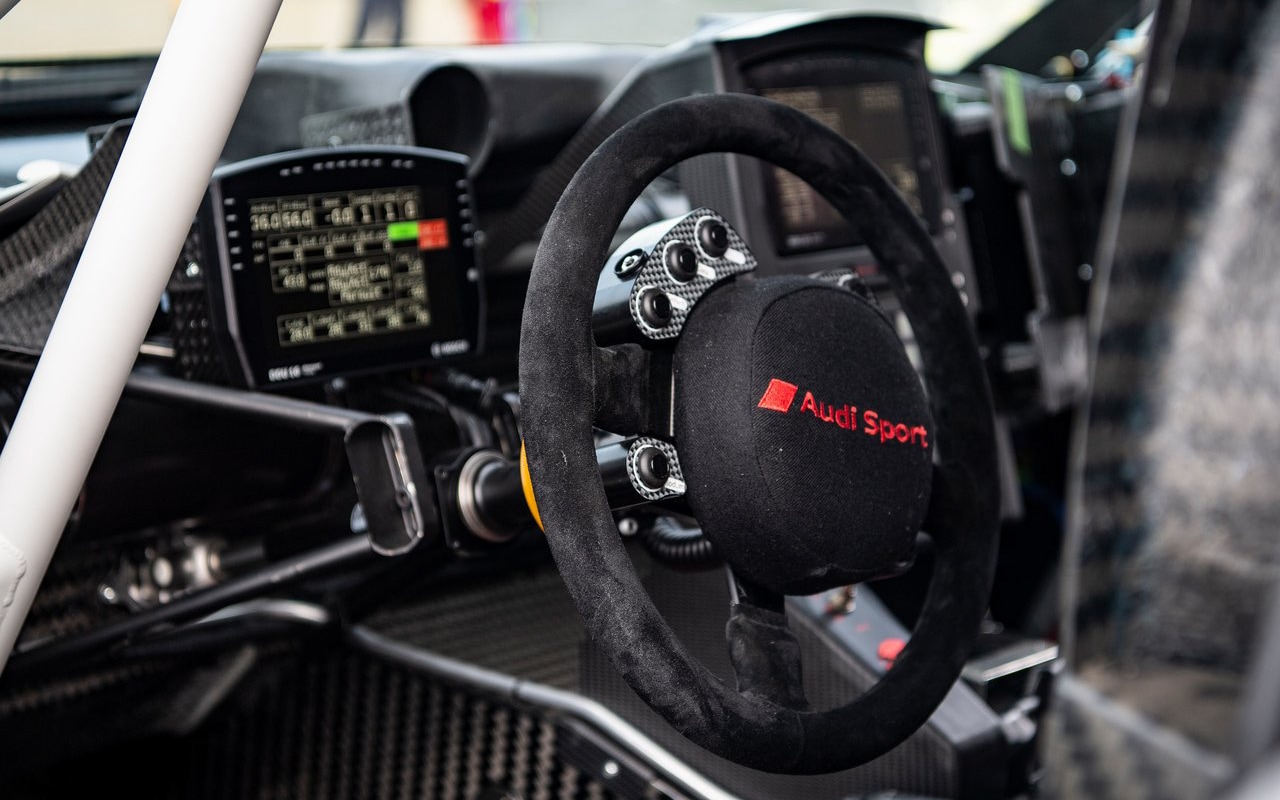
Audi is refocusing its motorsports efforts moving forward, withdrawing from Formula E and DTM and setting its sights on Le Mans and Dakar—two notoriously grueling environments yet drastically different ones. But the brand has unique experience to use for each application, boasting more than a dozen Le Mans victories along with a pair of Group B rally championships.
"The quattro was a gamechanger for the World Rally Championship. Audi was the first brand to win the Le Mans 24 Hours with an electrified drivetrain. Now, we want to usher in a new era at the Dakar Rally, while testing and further developing our e-tron technology under extreme conditions," said Julius Seebach, Managing Director of Audi Sport GmbH. "Our RS Q e-tron was created on a blank sheet of paper in record time and stands for Vorsprung durch Technik."
The new era of prototype regulations will not take effect until 2023, so Audi’s LMDh project is still in the works. But with the push for Dakar only months away, Audi has unveiled its competitor and explained what powers it.
The hybrid off-roader is called the RS Q e-tron and it borrows its powertrain specifically from the powertrains of the projects Audi is leaving behind. Electric motors from its race-winning Formula E program power each axle, with a 2-liter inline-four from the 2020 RS5 DTM entry acting as a range-extending power generator for the 50-kWh battery. Conventional charging is not a practical solution when you’re racing through the desert—who knew! The combined output is 671 horsepower, but it remains to be seen if regulations will restrict those figures at all.


A trio of RS Q e-trons will contest the 2022 event, and Audi has enlisted a strong lineup to command them. The group includes Stéphane Peterhansel, the winningest Dakar driver ever, along with Carlos Sainz and Mattias Ekström who are both champions on and off the asphalt.
Even with the car's and team's capabilities showing very strong, the project's accelerated development has been a unique challenge, but one that Audi is proud of.

"This project's schedule is extremely packed and challenging," Andreas Roos said. "Less than twelve months have passed since the project officially started. We had to begin the development while the regulations for alternatively-powered vehicles had not even been finalized yet. And all of the development took place during the Corona pandemic. You mustn't underestimate that either. What the team has achieved so far is unique. The roll-out was a very special moment for everyone."
Even with the car's and team's capabilities showing very strong, the project's accelerated development has been a unique challenge, but one that Audi is proud of.

"This project's schedule is extremely packed and challenging," Andreas Roos said. "Less than twelve months have passed since the project officially started. We had to begin the development while the regulations for alternatively-powered vehicles had not even been finalized yet. And all of the development took place during the Corona pandemic. You mustn't underestimate that either. What the team has achieved so far is unique. The roll-out was a very special moment for everyone."